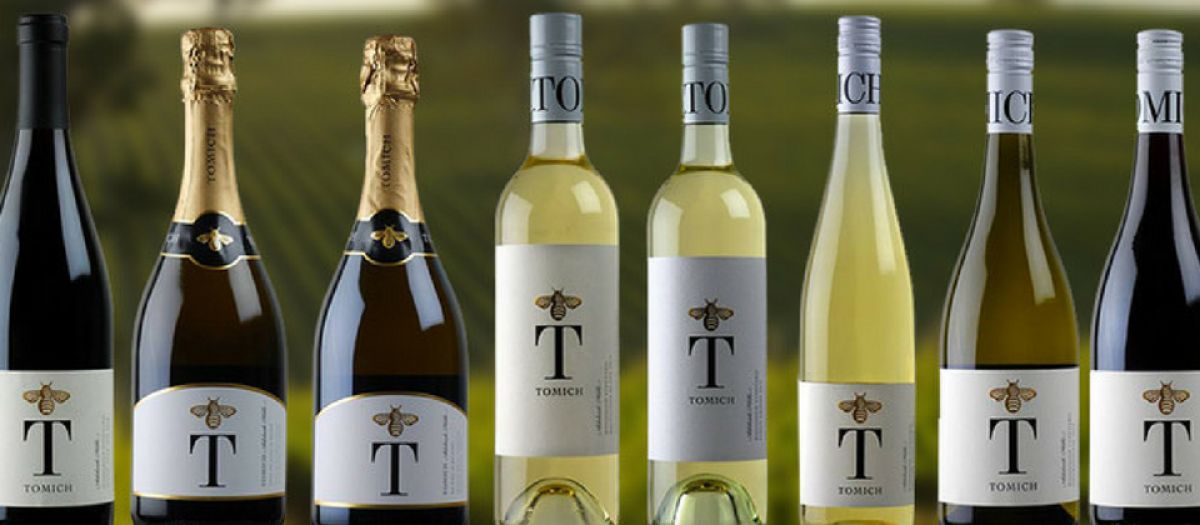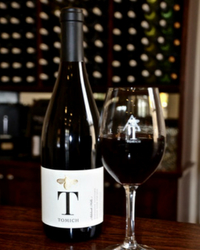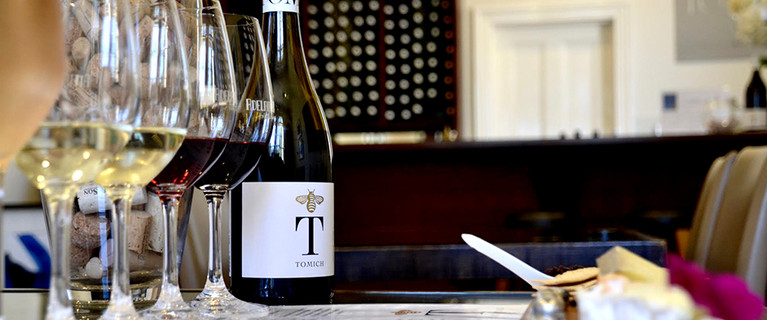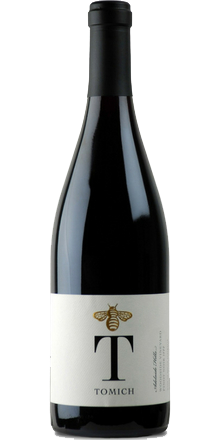Warehouse
Deadline
July 10, 2026
Judging
Date
July 27, 2026
Winners
Announced
August 12, 2026

Tomich Wine's head office is located in Woodside, South Australia. Wines from Tomich are softly farmed and grounded by passion and tradition, these wines are a delight for the senses.
The Tomich family hails from the Adriatic Coast in Croatia where winemaking is a way of life. Jack Tomich Senior arrived in Australia in 1903 bringing with him all of the grape growing and winemaking skills of his forefathers.
 The family had always made their own wine for home use and grew sultanas and wine grapes after moving to the new irrigation settlement of Mildura in 1936. Jack’s son Ivan showed a real passion for wine, and by 1946 was producing wine and selling it to local farmers. 3 generations of grape growers and winemakers later, the Tomich family now owns one of the best sites in the Adelaide Hills and had kept its ancestral way of softly farming the land and is pushing for sustainable growing practices
The family had always made their own wine for home use and grew sultanas and wine grapes after moving to the new irrigation settlement of Mildura in 1936. Jack’s son Ivan showed a real passion for wine, and by 1946 was producing wine and selling it to local farmers. 3 generations of grape growers and winemakers later, the Tomich family now owns one of the best sites in the Adelaide Hills and had kept its ancestral way of softly farming the land and is pushing for sustainable growing practices
Tomich Wines is dedicated to sustainable wine-growing with a multitude of environmental practices that have been implemented in and around the family vineyard at Woodside.
Farmed with sustainable practices, The Tomich vineyard has seen pioneer initiatives as well as traditionally environmental methods:
Integral to vineyard management is the grazing of 700 lambs throughout the year, mowing and fertilizing the land
Continued removal of exotic trees and weeds from the banks of the Onkaparinga River and re-vegetation with native species such as River Red Gum and Sandalwood (over 2000 trees planted over the last 3 years).
Use of designated areas that are specifically not grazed to retain notable 400 years old gum trees
Soil improvements are made by using nature’s own fertilizer: compost, sea kelp and cow manure. The mid-rows are sown to a diverse natural sward made of native grasses (rye grass, clover and legumes) that mulch into the soil and improve nitrogen.
Providing wildlife habitats on the vineyard and encouraging biodiversity
They apply very limited chemicals to the vineyard to retain insects and mites, and ensure the beneficial species’ activity (spiders, bees and worms) are monitored as a biological indicator.
These practices also put more flavour into the fruit. Have committed to excellence in vine balance and vineyard health.

The Tomich are continually improving farming practices to ensure that more environmentally sound and economically viable methods are implemented. Multi function tractor passes reduce fuel usage by up to 30%. Tomich Wines proactively monitors the latest in sustainable farming practices and make improvements to the vineyard program so that the highest of industry standards are met.
The Tomich Family is a coming together of John Tomich’s family, vine growers from Mildura since 1934 and Victoria Tomich’s family, vegetable growers and bee keepers since the 40’s.
The bee symbolizes the continuity of the family tradition and being at one with nature. We are true believers of sustainable viticulture over the years. Healthy bees (and spiders) are the measure of a healthy vineyard.
The bee plays a vital role in the eco-system and represents the environmentally sensitive “farming softly” approach to vineyard management.
The Tomich Family has been developing and managing Eucalyptus forests near Coonawarra, South Australia since 1998. The carbon credits from 200 acres of mature eucalypts in the Hundred of Coles, next to Coonawarra are dedicated to offsetting Tomich Wines carbon emissions.
With such strong vineyard ethics and passion, Tomich Wines are a true reflection of the great achievements from their farming history, knowledge and respect for the land. The Tomich family tenets of innovation, planning and commitment have produced a sustainable Adelaide Hills vineyard, with passion flowing from land to wine glass.
 Methode Champenoise, hand picked in the early morning, chilled overnight and pressed off, free run juice only. First fermentation in old French barriques. Second fermentation in bottle, on Tirage 2 years. Disgorged regularly every 3 months for 3 years.
Methode Champenoise, hand picked in the early morning, chilled overnight and pressed off, free run juice only. First fermentation in old French barriques. Second fermentation in bottle, on Tirage 2 years. Disgorged regularly every 3 months for 3 years.
Aged in our private cellares for 8 years for an optimal complexity and palate weight.
Bouquet: Rich aromas of citrus blossom, nectarine and strawberry.
Palate: Layered creamy soft palate with vibrant bead. Underlying mineral acidity carrying hints of citrus stonefruit, finishing with clean, crisp acidity and strawberry and blueberry.
Wine Profile
Food Pairing Notes
A delightful, refreshing rich style. Enjoy chilled when celebrating any special occasion.
Wine Specs
Vintage2009
VarietalPinot Noir
AppellationAdelaide Hills
Alcohol %12.5

Brooding briary fragrances with a touch of dried herb. The palate is a savoury combination of mulberry, black-cherry and candied red currant flavours, a tight structure and a tensile core, with bright, fine-knit tannins. A wine with great finesse and balance, well-integrated with its silky texture promising future seduction.
Colour: Deep crimson with brilliant purple hues.
Bouquet: Brooding briary fragrances with a touch of dried herb.
Palate: Savoury mulberry, black-cherry and candied red currant flavours, a tight structure and a tensile core, with bright, fine-knit tannins. A wine with great finesse and balance, well-integrated with its silky texture promising future seduction.
Wine Profile
Vineyard Notes
2015 experienced warm days, cool nights and no rain which meant that harvest was finished by the end of March, and the quality and yields of fruit were excellent.
Despite the threat from January’s bushfires, Adelaide Hills grape growers and winemakers are celebrating the best vintage in ten years with white and red wines showing the colours and flavours that only come after a long, dry summer and autumn.
Winemaker Notes
Hand picked and wild fermented in 3 parcels, the French clone 777 was selected for this first release wine. The 777 clone provides cherry and mid palate with a seductive earthiness. Whole bunch processed in open top fermenters, this wine was aged in French barrels, 30% new Burgundy and 70% new Bordeaux cooperage.
Food Pairing Notes
Rich, savoury flavours of a cassoulet made with duck confit.
Grow your wines in the off-premise channels of the USA. The Early Bird submission deadline is February 20, 2026, and the domestic submission deadline is June 30, 2026. Here is how to enter.